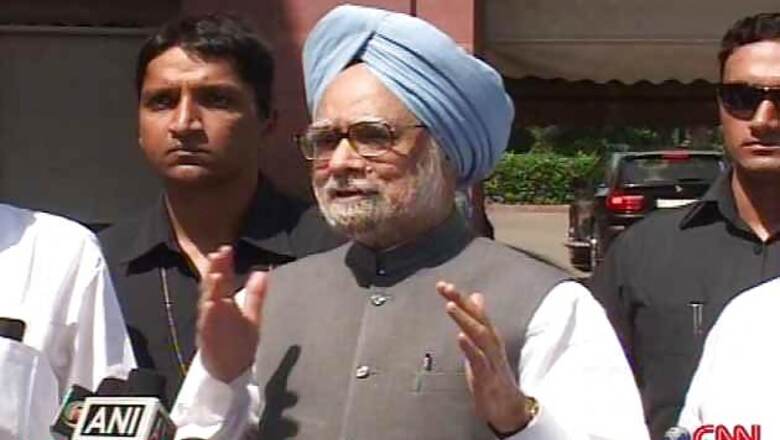
views
Kolkata: Expressing concern over growing intolerance among people of dissent, Prime Minister Manmohan Singh on Saturday favoured a rational discourse because narrow mindedness might affect creative instincts.
The Prime Minister noted that people are losing the ability to engage in rational discourse where different points of views are expressed.
"Public debate was often hostage to sensationalism. I sometimes fear that a growing culture of narrow mindedness may affect the creative, innovative and imaginative instincts of the country's youth," he said.
"I have been observing a growing intolerance among our people of dissent and opinions that contradict the prevailing orthodoxy. We seem to be losing the ability to engage in a rational discourse where different points of views are expressed," Singh noted.
He said Indian civilisation has a rich tradition of preserving social harmony and promoting conciliation by accommodating different view points, identities and cultural differences.
"We should strengthen these impulses through the propagation of a scientific temper and an enlightened understanding of the meaning of freedom of expression," Singh said.
Speaking at the inception ceremony as a general president of the Indian Science Congress Association (ISCA) on the occasion of its centenary, he said the theme for Congress in the city next year would be 'Science for Shaping Future of India'. "It is a theme that might have resonated just as well a 100 years ago when the association came into being," Singh said.
"I would signal the full support and commitment of the government to Indian science as it passed through a critical decade of innovation," he said at the function held at the Calcutta University.
"Our problems are overwhelming and need scientific solutions," he said. "We have to use our abundant intellectual resources to find new pathways of development that use our scarce natural resources judiciously."
The prime minister said, "We did not use science and technology in our development processes as much as we should have. We did not build local capacities that could meaningfully address problems of development in a decentralised manner using this knowledge."



















Comments
0 comment